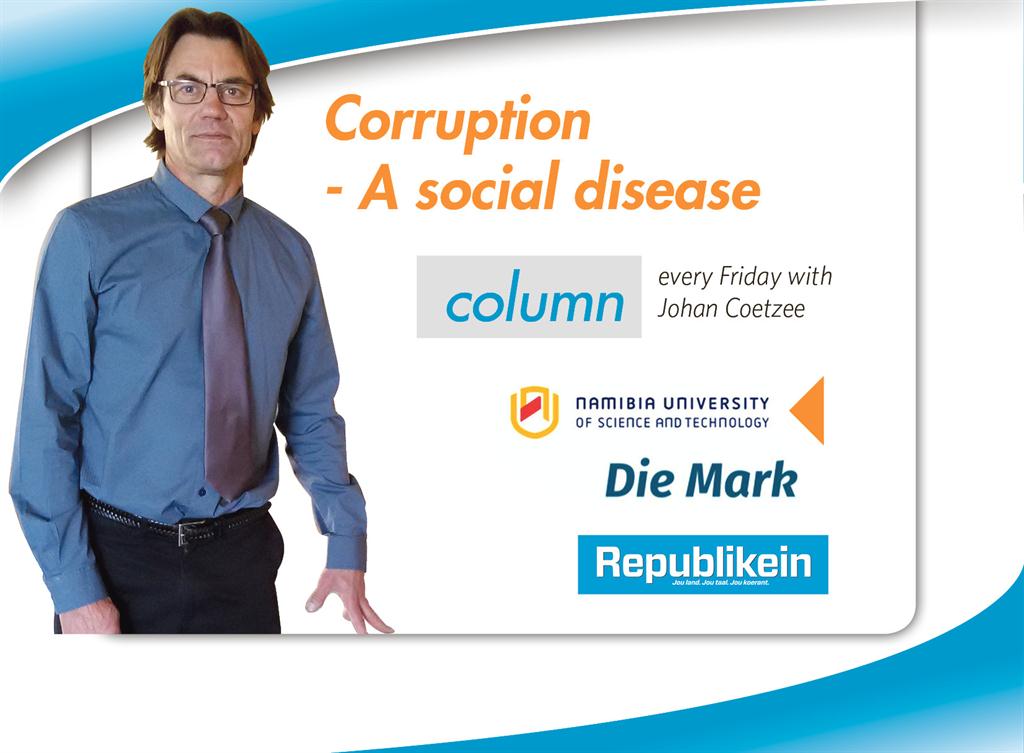Corruption - A social disease (Part 108): African and Namibian
Johan Coetzee - In order to inspire societies to develop and reduce corruption, they need identification with role models.
For this purpose, the Mo Ibrahim Prize for African Presidents has been created by the Mo Ibrahim Foundation to strengthen governance in Africa, with specific reference to assess the quality of governance in the areas of economic development, peace and security, human rights, democracy and the rule of law. The winner is selected annually by six individuals who assess all sub-Saharan African leaders who have been in a leadership position for at least three calendar years, and stepped down democratically from such position (The Mo Ibrahim Foundation Newsroom).
The first recipient of the Mo Ibrahim Prize in 2007 was Joaquim Chissano, a former President of Mozambique. The second recipient in 2008 was Festus Mogae, a former President of Botswana. During 2009 and 2010 there were no recipients. In 2011 Pedro Pires of Cape Verdi was the third prize winner.
Namibia's own President Hifikepunye Pohamba was named recipient of the 2014 prize that includes a once off amount of U$S 5 million and an annual amount for life.
LEADERS COMPARED
Although it is complicated to compare leaders, compared to Sam Nujoma and Hage Geingob, Pohamba has been more tolerant and inclusive to accommodate alternative views. Pohamba has been financially more prudent than Geingob.
However, Pohamba did not do much more than our other two presidents to reduce corruption. Pohamba, like Nujoma and Geingob, did not release to the media the more than eleven Presidential Commissions of Inquiry Reports into corruption.
Speculations are that the non-disclosure of those reports has been most likely to protect the so called "untouchable" political leaders (and business leaders with political connections) from scandals and prosecution.
The mass housing program initiated by Pohamba was unsuccessful. The urban land challenge escalated during his reign.
The generation gap in SWAPO escalated and has accumulated in the current divide between the old leadership vs the young Turks, e.g. the Affirmative Repositioning group.
From the brief discussion, it can be concluded that it seems that Namibian presidents are compromising their positions, e.g. through non-disclosure of critical documents and providing impunity to corrupt allies, and that deters from their ability to inspire, unite and transform the nation to develop.
• References
The Mo Ibrahim Foundation Newsroom. 2008. Graca Machel to Join Mo Ibrahim Prize Committee. [email protected]
For this purpose, the Mo Ibrahim Prize for African Presidents has been created by the Mo Ibrahim Foundation to strengthen governance in Africa, with specific reference to assess the quality of governance in the areas of economic development, peace and security, human rights, democracy and the rule of law. The winner is selected annually by six individuals who assess all sub-Saharan African leaders who have been in a leadership position for at least three calendar years, and stepped down democratically from such position (The Mo Ibrahim Foundation Newsroom).
The first recipient of the Mo Ibrahim Prize in 2007 was Joaquim Chissano, a former President of Mozambique. The second recipient in 2008 was Festus Mogae, a former President of Botswana. During 2009 and 2010 there were no recipients. In 2011 Pedro Pires of Cape Verdi was the third prize winner.
Namibia's own President Hifikepunye Pohamba was named recipient of the 2014 prize that includes a once off amount of U$S 5 million and an annual amount for life.
LEADERS COMPARED
Although it is complicated to compare leaders, compared to Sam Nujoma and Hage Geingob, Pohamba has been more tolerant and inclusive to accommodate alternative views. Pohamba has been financially more prudent than Geingob.
However, Pohamba did not do much more than our other two presidents to reduce corruption. Pohamba, like Nujoma and Geingob, did not release to the media the more than eleven Presidential Commissions of Inquiry Reports into corruption.
Speculations are that the non-disclosure of those reports has been most likely to protect the so called "untouchable" political leaders (and business leaders with political connections) from scandals and prosecution.
The mass housing program initiated by Pohamba was unsuccessful. The urban land challenge escalated during his reign.
The generation gap in SWAPO escalated and has accumulated in the current divide between the old leadership vs the young Turks, e.g. the Affirmative Repositioning group.
From the brief discussion, it can be concluded that it seems that Namibian presidents are compromising their positions, e.g. through non-disclosure of critical documents and providing impunity to corrupt allies, and that deters from their ability to inspire, unite and transform the nation to develop.
• References
The Mo Ibrahim Foundation Newsroom. 2008. Graca Machel to Join Mo Ibrahim Prize Committee. [email protected]




Kommentaar
Republikein
Geen kommentaar is op hierdie artikel gelaat nie